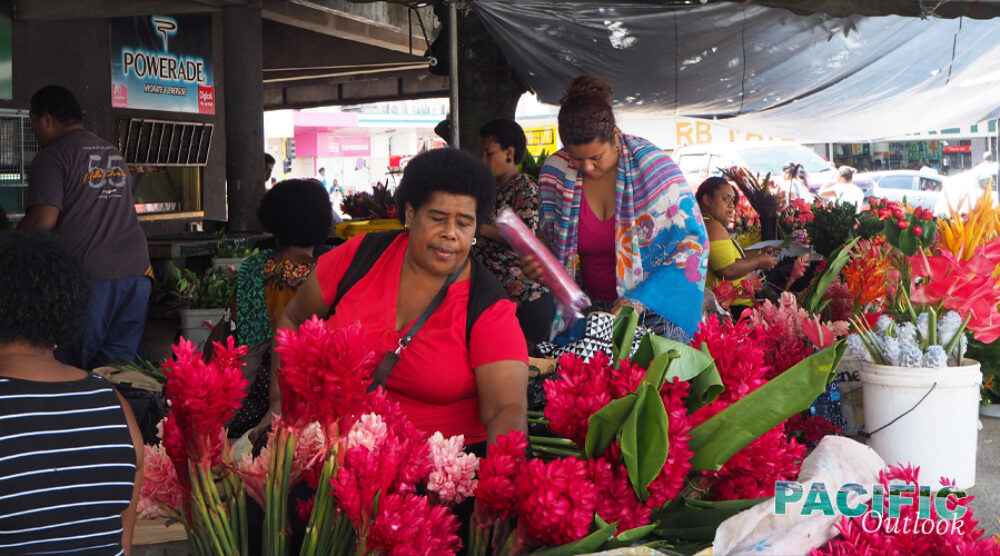As a global Pacific Trade Invest (PTI) network, we recently released the results of our first longitudinal online survey of small and medium sized enterprises across 16 Pacific island nations.
The PTI Pacific Business Monitor (PBM) will track the sentiment and performance of these businesses over the next six months surveying them every fortnight with the dual aim of providing governments, donors and stakeholders with up-to-minute data about how businesses across the Pacific region are being affected by the COVID-19 pandemic, and providing PTI Australia and the PTI network with local information that will help guide our decisions about the best ways to support the Pacific’s private sector through our work as the Pacific’s lead trade and investment promotion agency.
Businesses across multiple sectors have been hit hard by the pandemic in a variety of ways, particularly by the closing of international borders and travel restrictions.
And, like many Australian businesses that are coping with the challenges of COVID-19 with the memory of drought and bushfires still fresh in their minds, many Pacific businesses are still recovering from the impacts of the measles epidemic last year in Samoa and the recent widespread destruction caused by Tropical Cyclone Harold in Solomon Islands, Vanuatu, Fiji and Tonga.
Whether we look at this from a cashflow, sales, operations or mental health perspective, the first PBM results show that COVID-19 is taking a toll on Pacific business decision makers and owners. But there are also positive signs.
We found that just over a quarter of businesses that responded remain fully operational; 43 per cent are partly operational, 29 per cent have temporarily closed operations and two per cent have permanently closed.
Ninety-one per cent of the businesses we surveyed reported a decline in revenue. However, there is also encouraging feedback; some businesses have been able to pivot to marketing online or are using social media to connect with digital communities in their market, and two-thirds of businesses are confident they will survive, despite almost half not expecting their revenue to return to pre-COVID-19 levels until 2021 or later.
Through our day-to-day interactions with businesses in the Pacific, we hear the stories of how COVID-19 is impacting different kinds of businesses and the challenges they face. As a global PTI network we see the importance of quantifying the anecdotal feedback we are receiving to inform not only our work in the Pacific but also provide valuable longitudinal data to governments, donors and stakeholders.
When we consider ways that businesses are buffering themselves from the effects of the pandemic, digital connectivity has perhaps never been more important. Twenty-two per cent of those surveyed reported they were doing more business online, and many businesses that had already moved to digital have found they were able to reposition themselves.
In response to COVID-19, we have worked with our digital tourism partner WHL and national tourism organisations throughout the Pacific to launch PTI Australia’s Digital Tourism COVID-19 support package.
To date, this has included reduced fees for tourism providers to maintain hosting of their websites, daily phone calls to provide digital support, and a series of virtual PTI Australia Digital Tourism Workshops to help narrow the digital divide and ensure businesses are export ready – the first of which was held in partnership with the Tourism Authority of Kiribati to tourism operators in Tarawa and Kiritimati.
I also want to emphasise how different Pacific Island nations can be from one another in terms of how and to what extent they are being affected, and in the levels of government support available to them.
This research gives us fresh on-the-ground feedback that we can use to build a more nuanced picture of how businesses in different Pacific nations are being impacted and the opportunities for supporting the rebuilding of the private sector through different stages of a country’s recovery.
What are the real needs; what are the priorities – what will make the greatest difference to businesses in different Pacific Island nations? These are the questions we want to answer and the insights we want to share through the results of this research. As we move forward, the private sector will be key in rebuilding Pacific economies.
It’s a long road ahead and it’s imperative that the impact of COVID-19 on businesses in the Blue Pacific is monitored, and that the views of the smaller island states, where qualitative data isn’t readily available, is included.
Click on this link to access the full Pacific Business Monitor report (and future reports), which includes data from the top four Pacific countries we received responses from (Fiji, PNG, Tonga and Vanuatu), providing insights into the nuances COVID-19 is having on the private sector in different Pacific countries.
AUTHOR
Caleb Jarvis is PTI Australia’s Trade & Investment Commissioner. Founded in 1979, PTI Australia is an agency of the Pacific Islands Forum Secretariat. Funded by the Australian Government, it facilitates trade and investment in the Pacific Islands.








